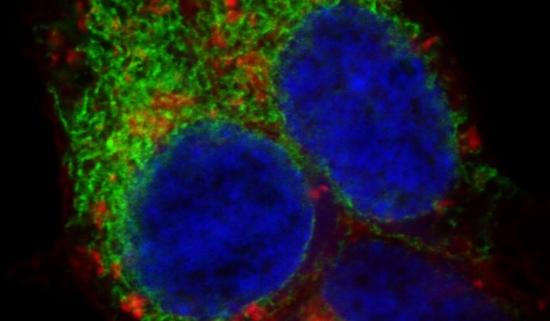Targeting cancer’s vulnerabilities

Dr Daniel Tennant at the University of Birmingham is investigating what happens when cancer cells don’t get enough oxygen.
As tumours develop and become crowded with cells they can outgrow their blood supply, leading to a lack of oxygen and key nutrients. This can force the cancer cells to adapt in order to survive this harsh environment. However, these adaptations also make them become resistant to treatment, increase their spread and lead to a more aggressive disease.
Dr Tennant is looking how cancer cells adapt their metabolism in these conditions, and whether this makes the tumour vulnerable in other ways. As the cancer cells can’t make energy and grow in the usual way (which relies on using oxygen), they depend more heavily on alternative pathways. They believe that these dependencies can be specifically targeted, leading to new ways to kill these aggressive cancer cells.
Dr Tennant has already identified 3 molecules that are important in this adaptation to survive. Now, he’s investigating these in greater detail, and looking to find more targets. To do this, he simulates the hypoxic conditions in cancer cells in the lab and uses new techniques to trace in fine detail how the cancer cells use of nutrients and oxygen changes.
He hopes that this work will reveal a way to target cancer’s dependencies, leading to new ways to treat the disease.
